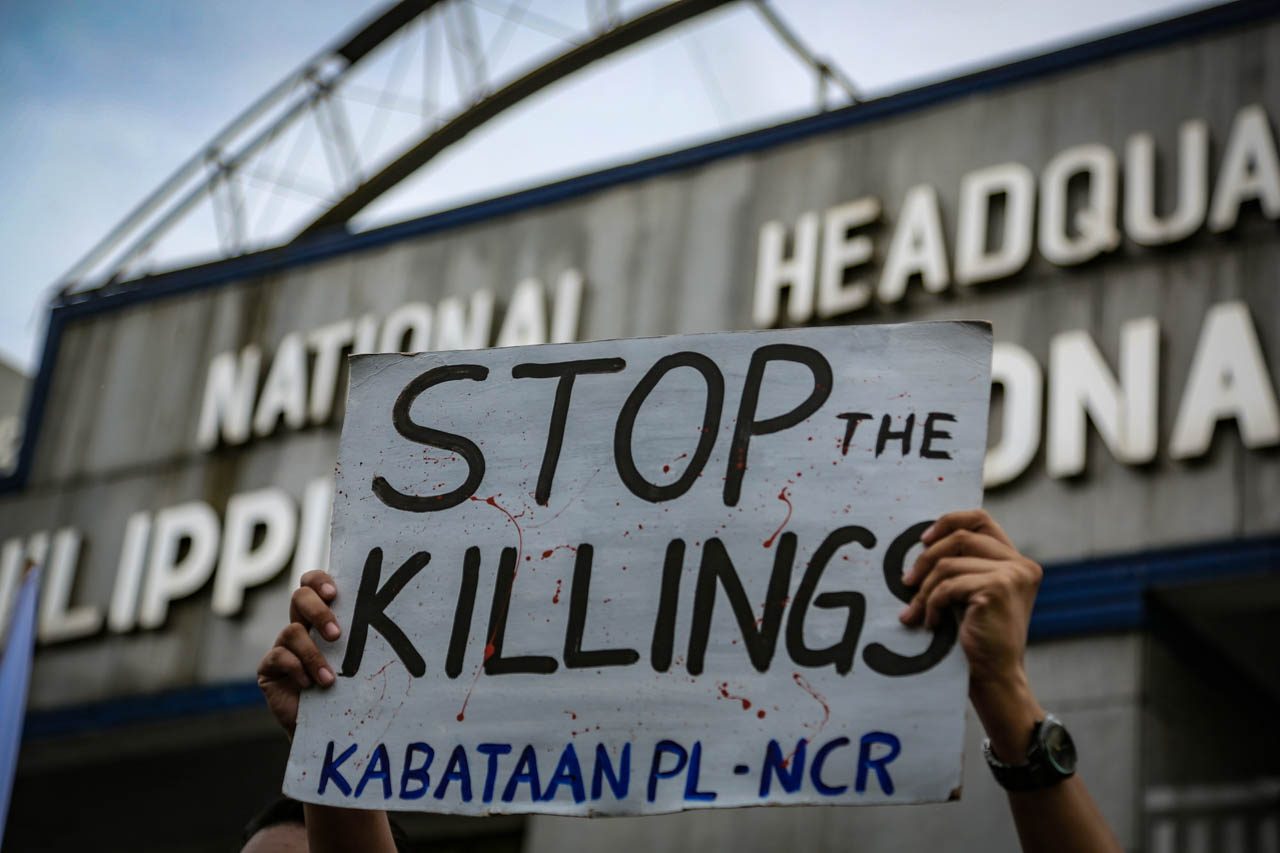SUMMARY
This is AI generated summarization, which may have errors. For context, always refer to the full article.

MANILA, Philippines – A United Nations expert on Thursday, October 10, slammed President Rodrigo Duterte’s anti-illegal drugs campaign as a sham as it did not address the root problems.
Philip Alston, UN special rapporteur on extreme poverty and human rights, said the drug war so far only proved the extent of Duterte’s “problematic” authority and control over government policies deemed to be violative of people’s rights.
“The so-called war on drugs is clearly a show of force designed to show arbitrary power,” he said during a pre-recorded speech for the National Congress Against Anti-Death Penalty.
Alston said that the campaign is not in any way designed to assist those struggling in communities even if there are a lot of ways programs can be enacted to address these issues.
“Empowering communities and providing them financial and other resources is a way to deal with the problem while the killing of a significant number of people may have achieved other government objectives but has done nothing in terms of eliminating the drug problem,” he said.
The Duterte administration has been widely criticized for the violent war on drugs that saw deaths of at least 5,526 drug personalities in legitimate police operations alone. Human rights organizations, meanwhile, peg the total death toll to more than 27,000 to include those killed vigilante-style. (READ: The Impunity Series)
Alston pointed out that the drug war can be considered as an “unofficial” form of death penalty which has severe consequences on society in terms of human rights violations, most especially against the poor.
“There’s a problematic link between allowing death penalty and giving power to police to execute people they deemed undesirable,” Alston said. “I see these sorts of uncontrolled campaigns against any particular group conducted outside the formal legal system as essentially constituting a war on the poor.”
These “lesser forms of death penalty” has been a global trend and is no different from what he saw in Davao City as the death squad was also engaged in so-called “social cleansing,” he added.
Alston is no stranger to the human rights record of Duterte. As UN special rapporteur on arbitrary executions, he undertook a mission and reported on the situation in the Philippines in 2008, including the Davao Death Squad allegedly linked to then-mayor Duterte.
The notorious death squad is accused of carrying out thousands of killings of criminals, and also hits on Duterte’s enemies. In 2012, the Commission on Human Rights released a resolution stating that it found “probable cause” and recommended that the Office of the Ombudsman investigate the “possible administrative and criminal liability” of Duterte. (READ: Davao Death Squad: What ever happened to the investigations?)
International Criminal Court Prosecutor Fatou Bensouda opened a preliminary examination into the drug war killings in February 2018 after many human rights organizations and individuals submitted communications to her office. This step will establish whether the ICC has jurisdiction over the matter.
In response, Duterte initiated the Philippines’ withdrawal from the ICC which took effect in March 2019. (READ: Duterte throws out decade-long fight for the International Criminal Court) – Rappler.com
Add a comment
How does this make you feel?
There are no comments yet. Add your comment to start the conversation.